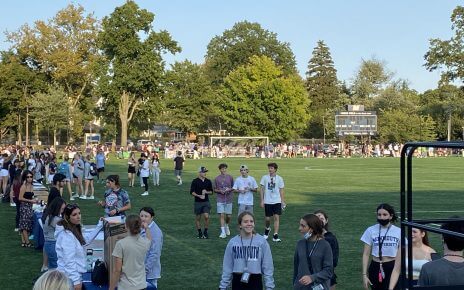Alicia Graham has her entire day planned to the minute from the time her children get on the school bus to when she gets to work to what time see gets to class, and how much time she has to cook and clean before getting her homework done for the next day.
“It’s a challenge. I find myself overwhelmed sometimes by everything I have to do,” said Graham, 38, of Englewood, N.J., who is a single mother working toward her college degree.
For her, time is a commodity that is extremely hard to come by. And according to a new study, as a college student she is not alone.
According to the findings of the nonprofit organization Complete College America, 75 percent of students today are college commuters, juggling families, jobs and school.
The major factor preventing many from completing their degrees is time or to be more exact, the lack of it.
These completing demands are forcing many of today’s students to stay in school longer which, according to the study, can severely hurt their chances of actually completing their degrees.
“As the clock runs, students’ lives fill up with jobs, relationships, marriages, children and mortgages. The list goes on and on,” said the founder of Complete College America, Stan Jones.
And with the majority of students taking at least six years to complete a bachelor’s degree, Jones said it’s time that colleges rethink the way they structure their programs.
“Colleges need to realize that the way that they are doing things isn’t working,” he said.
His organization’s report, “Time is the Enemy,” says that the key to increasing graduation rates is creating programs that help students make better use of their time rather than let them “waste it” on excess credits, remedial classes and attending part-time.
Many colleges and universities acknowledge the need to help students complete their degrees in a timely fashion.
Bergen Community College is attacking the problem by getting students on the right track early. With the aid of a $2.9 million Title Five grant, the college has implemented an institution wide program 123 Connect to improve academic success and student retention.
The program consists of a summer orientation and two not-for-credit courses that focus on giving first-year students the advice and mentoring they need to succeed.
“Research and data shows that students who see success in their first three semesters tend to continue that success,” said Jose Adames, president of Bergen, N.J., Community College.
While some students do not succeed because they do not have time to complete their assignments, other students can complete their work faster when given the opportunity to work at their own pace.
This is exactly the idea behind the new math computer lab on campus that allows students to take a virtual course at their own pace rather than over a 15-week semester, ten completing the work in as little as six weeks.
“It’s amazing what students can do when they are given the flexibility to work at their own speed,” Adames said.
Passaic County Community College, meanwhile, is working with the national nonprofit Achieving the Dream to figure out what factors interfere with student achievement. Steven Rose, president of the college, said that the school will consider improvements in course offerings, scheduling, remediation and advisement.
“There is no magic bullet or one-size-fits-all solution to the issues that prevent some of our students from completing, but it all starts with creating new pathways and strategies,” Rose said.
At Montclair State University, a new office was created especially to address issues that prevent students from completing their degrees. Headed by Tara Zulo, the new Academic Success and Retention Program aims to change the way students think about completing their degrees.
“We want to change ‘I wish there was something I could do’ into ‘Let’s see what we can do,'” said Zulo, whose department is focusing on helping Montclair seniors and juniors complete their course work.
“Sometimes all they need is one or two courses to graduate, and they don’t even know it,” she said.




